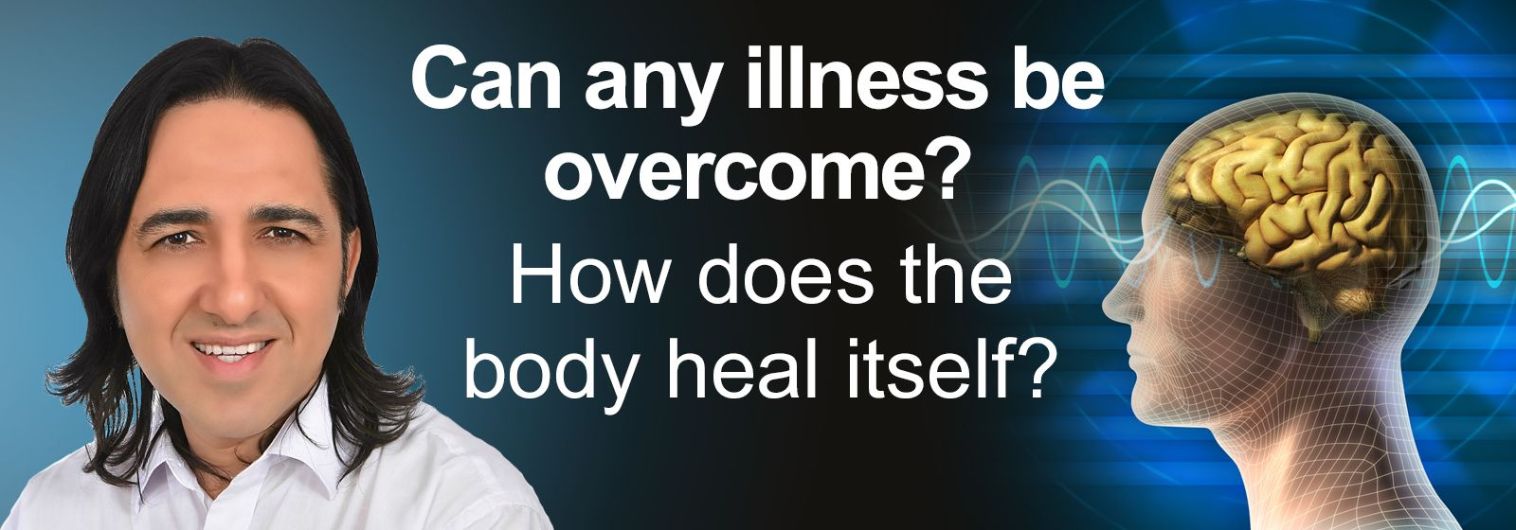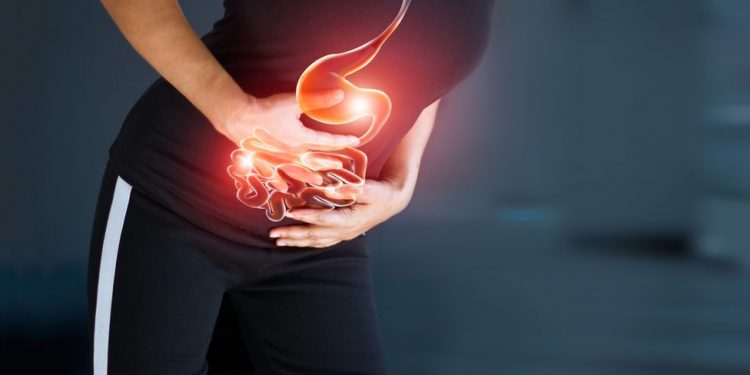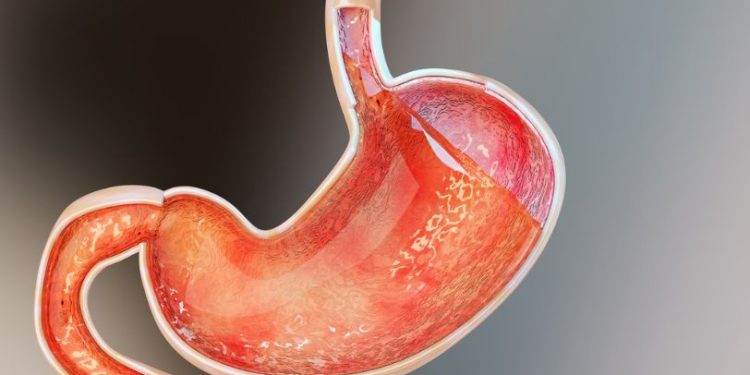
Clinical Trials May Offer New Treatments for Stomach Cancer
Scientific research is continuing to learn more about stomach cancer, how it grows and spreads, and how best to treat it. Clinical trials may offer new options for people with this disease.
Some people have a higher risk of stomach cancer because of their race or ethnicity or their family history. They might also have a condition that increases their risk.
Symptoms
Stomach cancer (also called gastric cancer) starts in the cells within the upper section of your digestive tract, which consists of the esophagus, stomach and small intestine. Cancerous cells start to grow out of control, forming a tumor that can spread (metastasize) to other parts of your body.
The most common type of stomach cancer is adenocarcinoma, which begins in gland cells in the lining of your stomach. It makes up about 90% of all cases of stomach cancer. Other types of stomach cancer are lymphoma, which begins in the immune system; carcinoid cancer, which begins in hormone-producing cells; and gastrointestinal stromal tumor (GIST), which starts in tissues that line your digestive tract.
Most people who have stomach cancer don’t have any symptoms at first. But if you’ve had persistent, unusual or long-lasting problems with your stomach, you should talk to your doctor. He or she may order tests to check for a cancerous tumor or another cause of your symptoms.
Symptoms that might suggest you have stomach cancer include pain in your tummy (abdomen), behind your breastbone (sternum) or when you swallow. Other conditions, such as indigestion, can also cause these symptoms. If you have them often and they don’t go away, you should see your doctor.
Stomach cancer usually grows slowly. It may take years for it to reach the last stage of cancer, when it’s spread to other organs. Doctors use scans and other tests to find out the stage of your cancer. They may also use a procedure that destroys the tumor with a laser from an endoscope, which is a thin tube that they slide into your throat.
The stage of your cancer tells you how far it has grown and what type it is. Stage 0 is the earliest stage, and it means that your cancer hasn’t grown beyond the thin layer of muscle in your stomach wall. It also hasn’t spread to nearby lymph nodes. In this stage, your doctor will probably treat you with surgery and chemotherapy or chemoradiation. You might also get radiation therapy, which uses beams of high-energy to kill cancer cells.
Diagnosis
Stomach cancer happens when something hurts the cells in your stomach’s inner lining. The damaged cells keep growing and multiplying, and the extra cells form a mass called a tumor. The cancer can spread to other parts of your body. To diagnose stomach cancer, your doctor will ask about your symptoms and do a physical exam. He or she may feel a mass in your stomach. Your doctor also may order several tests to check for and stage (find out how far the cancer has spread) stomach cancer.
X-rays, CT scans and PET scans can help doctors find a tumor in the stomach and see how much it has grown. They can also help doctors find out if the cancer has spread to nearby lymph nodes or other organs.
An endoscopy is a test in which your doctor puts a thin, flexible tube with a small camera on the end of it down your throat and into your stomach. The camera lets the doctor see the inside of your stomach and the first part of your small intestine. The doctor can also use the endoscope to take tissue samples from the area of your stomach with a tumor. These samples are checked under a microscope to look for cancer cells.
Other tests your doctor may order include a complete blood count (CBC) and liver function tests. The CBC blood test measures the number of red and white blood cells and platelets in your body. A CBC can tell whether you have anemia, which is caused by too few healthy blood cells. Liver function tests can help find out if you have liver disease, which can lead to stomach cancer spreading to your liver.
If your doctor finds a tumor in the lining of your stomach, he or she will do a biopsy to confirm that the tumor is cancer and to get more information about the type of cancer. You may have blood work done before and during your surgery to make sure you can tolerate the procedure. Advance genomic testing can tell doctors what mutations are in your tumor. This allows them to create a more accurate treatment plan.
Treatment
Stomach cancer occurs when cells that line the inside of your stomach grow out of control and form a tumor. It may spread to other parts of the body. There are several treatment options for people with stomach cancer, depending on the type and stage of your cancer. Your doctor will create your treatment plan and recommend a combination of treatments that are best for you. This is called multidisciplinary care. You’ll work with a team of doctors from different specialties who are experts in treating people with cancer.
Doctors can often spot stomach cancer by doing a physical exam. They might also order blood tests or an X-ray of your stomach to find out how much the tumor has grown and whether it has spread. These tests are usually done before surgery to diagnose the cancer and help your doctor make a treatment plan.
The most common types of stomach cancer are adenocarcinomas that develop in the innermost stomach lining. These are usually slow-growing, but they can spread (metastasize) quickly to other parts of the body.
Other cancers of the stomach are squamous cell carcinoma that grows from the lining of the stomach, lymphoma that starts in the immune system in the stomach and in other areas of the body like lymph nodes and bone marrow, and gastroenteropancreatic neuroendocrine cancer that grows from the nerve and endocrine cells of the stomach. Rare types of stomach cancer include gastrointestinal stromal tumors and inflammatory pseudotumor.
A specialized type of chemotherapy, HIPEC, might be an option for people with stomach cancer. During this procedure, your doctor will mix chemotherapy drugs with heated bile that’s pumped into the stomach to kill cancer cells and ease symptoms.
People with early-stage stomach cancer that hasn’t spread have a 69% chance of surviving 5 years after diagnosis. This is higher than the average for other cancers. If the cancer has spread to other organs, your chances of survival drop significantly.
You can lower your risk of stomach cancer by not smoking, eating a healthy diet and staying physically active. You should also avoid smoked, pickled and preserved foods and be careful with spicy foods because they can irritate your stomach.
Prevention
Stomach cancer, also called gastric cancer, starts in cells that line the inside of the stomach. The cancer cells start to grow out of control and can spread (metastasize) to other parts of the body.
Cancer is usually caused by changes (mutations) in the DNA of a cell. These mutations cause the cells to grow and divide without control or order. As the tumor grows, it may block the flow of food into and out of the stomach. The tumor can also change the way the stomach functions by changing the tissue that lines it.
Most stomach cancers are adenocarcinomas, which develop from the cells that line the inside of the stomach. This type of cancer makes up 90-95% of all stomach cancers. Other types of stomach cancer can develop, but they are much less common. They include chronic atrophic gastritis, gastrointestinal stromal tumors, and intestinal metaplasia. These precancerous conditions can become cancer if left untreated.
The risk of stomach cancer increases with age. It is also more common in people from East Asia and Eastern Europe than in those in the United States or other Western countries. The disease is more common in males than females. It affects people of all races, but it is more likely to happen to people who are Hispanic or African-American.
People who have certain genetic conditions are more likely to get stomach cancer. These include hereditary diffuse gastric cancer syndrome and Lynch syndrome.
The best way to prevent stomach cancer is to avoid tobacco and excessive drinking. You should also eat foods that are high in fiber and vitamins, such as fruits, vegetables, whole grains, and low-fat milk. You should also limit very salty, pickled, cured, or smoked foods, and take aspirin or nonsteroidal anti-inflammatory drugs (NSAIDs) only to treat pain.
Stomach cancer can be hard to diagnose because it often doesn’t cause any symptoms in the early stages. That’s why doctors don’t do routine screening for stomach cancer. But if you are at higher risk, you might have some tests to look for the disease. These might include:

For 30 years, Oren Zarif has been using psychokinesis to treat thousands of patients from around the world with various illnesses. According to him, most of the diseases found in the human body develop as a result of stress, pressure, anxiety, abnormal energy flow and various other reasons. He claims that the body can cure any disease using his unique healing method. He also believes that there is no such thing as an incurable disease. The reason for this is that a person can recover from any disease if he understands its causes.
Stomach Cancer
Stomach cancer starts in the stomach, a sack-like organ that holds food to begin digestion. Cancer cells overtake healthy cells and grow out of control. They may also spread to other parts of the body.
It’s not clear what causes most cases of stomach cancer. But some things make it more likely to happen, like having a history of stomach ulcers, eating a lot of salty foods or having pernicious anemia (where the body can’t absorb vitamin B12).
A diagnosis of stomach cancer usually comes after a physical exam and blood tests.
Causes
Stomach cancer is a form of cancer that starts in cells in the lining of the stomach. Cancer cells grow faster than normal cells and may spread to other parts of the body.
Scientists don’t know what causes most cases of stomach cancer. But they do know things that can increase your risk of developing the disease. These include having long-term inflammation of the stomach (gastritis), a bacterial infection called Helicobacter pylori that can cause ulcers, and certain genetic syndromes like familial adenomatous polyposis, Lynch syndrome, Peutz-Jeghers syndrome, and Li-Fraumeni syndrome. People who have a history of stomach surgery or who have a condition called pernicious anemia or achlorhydria — which happens when your body can’t make enough hydrochloric acid to digest foods — also have a higher risk of stomach cancer.
Smoking doubles your risk of stomach cancer. And having a high body mass index or eating a lot of salty, pickled, cured, or smoked foods can raise your risk as well. Having a family history of stomach cancer or being exposed to certain dusts and fumes at work can also raise your risk.
If you have any of these risk factors, talk to your doctor. They can help you take steps to lower your risk.
Symptoms
The stomach is a muscular, J-shaped organ in your abdomen that holds and breaks down food. Its cells sometimes change and grow faster than normal, overtaking healthy cells and forming a tumor. If it’s not treated, cancer can spread to other parts of your body (metastasize).
The most common type of stomach cancer is adenocarcinoma. It starts in gland cells and usually spreads from the surface of the stomach lining into deeper layers of the stomach wall. Other types of cancer that can start in the stomach include squamous cell carcinoma, lymphoma, leiomyosarcoma and neuroendocrine tumors. Rare forms of stomach cancer include pylorus-sphincter junction tumors, gastrointestinal stromal tumors and carcinoid tumors. Cancer that has spread from other parts of the body to the stomach is called metastatic disease.
Stomach cancer can cause many symptoms. Some of them are similar to other conditions, like indigestion and heartburn. That’s why it’s important to see your doctor if you have these symptoms and they don’t go away, especially if you also have weight loss or other signs of stomach cancer.
Your doctor can diagnose stomach cancer by doing a physical exam and taking your medical history. Your doctor will also order imaging tests, such as X-rays, computed tomography (CT) scans and magnetic resonance imaging (MRI). These tests can help find the location of the cancer in your stomach. They can also show how much the cancer has grown and whether it has spread.
You may need surgery, chemotherapy or radiation to treat stomach cancer. If the cancer is in an early stage and hasn’t spread, you might only need surgery. For advanced cancers, you might need chemo or a combination of chemo and radiation before surgery.
Treatment options depend on how far the cancer has spread and your age and general health. In general, surgery is the main treatment for stomach cancer. You might also get a special type of chemo, called targeted therapy, that kills cancer cells while leaving healthy ones alone. You might also get drugs that keep your immune system working well.
Diagnosis
When you’re diagnosed with stomach cancer, your care team will work together to decide the best treatment for your situation. The team may include a gastroenterologist, a doctor who treats problems of the digestive tract; a cancer specialist called an oncologist; and a surgeon who specializes in operating on the stomach.
Your doctor will ask about your symptoms and health history and do a physical exam. Then your doctor will order lab tests to check for stomach cancer or to see how far the tumor has spread. These lab tests include a complete blood count, which measures the numbers of different types of cells in your body; a stomach bleed test to check for ulcers or other abnormalities; and an imaging test to find out how your stomach is working, such as an ultrasound or CT scan.
To check for spread of the cancer, doctors use a procedure called staging. This involves determining how deeply the tumor has invaded your stomach’s lining and how much it has spread to nearby lymph nodes. Doctors also use a special kind of imaging test called positron emission tomography (PET) scan, which gives them a picture of how your organs are functioning by injecting a small amount of radioactive glucose into your bloodstream. The cancer cells take up the glucose, so they show up brighter in the picture than normal cells do.
Most cases of stomach cancer are in stage 0, when the tumor is just in your stomach’s lining and has not spread to other parts of your body. At this stage, surgery usually cures the disease. Your doctor will remove part or all of your stomach and nearby lymph nodes, and you might also get chemotherapy or chemoradiation to shrink the tumor and kill any cancer cells that are left.
You might be able to help your doctor find out more about the type of stomach cancer you have by answering questions about your family history and lifestyle choices, such as whether or not you smoke and what you eat. You might also want to try a new test that looks at a cancer cell’s DNA to find out what is making it grow. This test is called advance genomic testing and is only available for certain types of tumors, including stomach cancer.
Treatment
For most types of stomach cancer, your care team will work to treat the cancer, relieve symptoms and prevent the cancer from coming back. They will develop a treatment plan that best fits your needs, stage of disease and personal preferences.
Your doctor will review your medical history, do a physical exam and order tests to diagnose the condition and find out how far it has spread. Your test results will help them decide what type of treatment you need. Staging is the process of determining how far your cancer has grown and where it’s located within your stomach. Stage 0: There are abnormal cells in only the stomach lining, but they haven’t spread to other tissues. Stage 1: The cancer has grown into deeper layers of the stomach and maybe into nearby lymph nodes.
Surgery to remove the tumor and a margin of healthy tissue is an option for all stages of stomach cancer. At MD Anderson, we often give chemotherapy and radiation before surgery (neoadjuvant chemoradiation therapy) to kill cancer cells and shrink the size of the tumor. Surgery can also be combined with other treatments, such as targeted therapy or immunotherapy, depending on your stage of cancer and your doctor’s expertise.
Our surgeons use minimally invasive surgery, when possible, to minimize the amount of tissue removed. For early, noninvasive cancers like squamous cell carcinoma and gastric carcinoma, our doctors may use a thin tube (an endoscope) to remove the cancerous tissue through your mouth. They may also perform a partial (wedge) or subtotal gastrectomy, which involves removing part or all of the stomach, the surrounding lymph nodes and sometimes parts of the esophagus and small intestine.
If you have a HER2-positive gastric cancer, your provider may recommend the drug trastuzumab deruxtecan to reduce the chance of the cancer spreading. Your doctor will check if you are a good candidate for this treatment based on your genetics and other factors.









